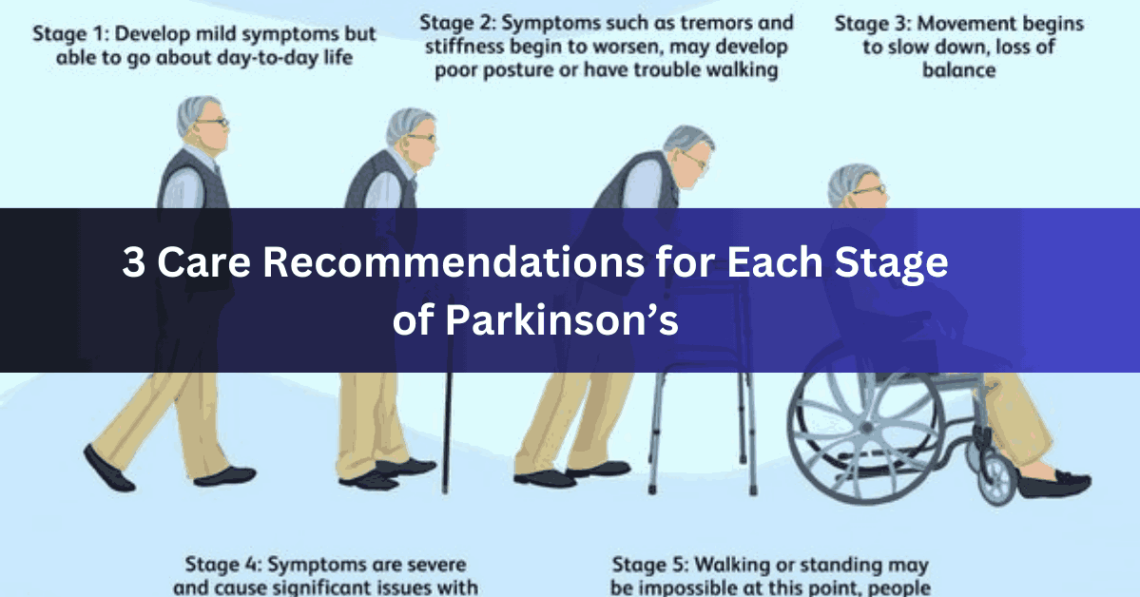
3 Care Recommendations for Each Stage of Parkinson’s
Parkinson’s disease can affect movement, resulting in tremors, stiffness, and balance issues. Managing Parkinson’s can use a holistic approach that evolves with the individual’s changing needs across different stages of the disease. Here are home care recommendations for each stage of Parkinson’s:
1. Early Symptoms
During stage one of Parkinson’s disease, patients may experience mild symptoms that might not impact their daily life. Symptoms like tremors, posture changes, and difficulty walking might indicate stage one Parkinson’s.
Getting a medical assessment when you experience Parkinson’s symptoms allows for early diagnosis. If detected early enough, doctors can prescribe medication to alleviate symptoms. It helps to engage in regular physical activity and exercises tailored to maintain balance and muscle strength.
2. Moderate Symptoms
As Parkinson’s progresses, symptoms become more noticeable and may impact daily activities. Stage two Parkinson’s may have symptoms on both sides of the body. This can result in weakness and cause daily tasks to become strenuous.
At this stage, an individual may require home care or adjustments to their daily routine. When Parkinson’s advances, it helps to seek a doctor to alter your prescription to address the changing symptoms. Work closely with healthcare providers to monitor the efficacy and side effects of Parkinson’s medication.
Using assistive devices like canes or walkers can enhance mobility and reduce your risk of falls. Continue with regular exercise, adapting your routine to accommodate your mobility challenges. Seek the services of a speech therapist if you have difficulty swallowing or speaking.
Maintain a balanced diet with plenty of fruits and vegetables to prevent constipation, which is expected as the digestive system slows. A nutritionist can help you create a meal plan that accommodates your dietary needs and potential medication-nutrient interactions.
3. Advanced Symptoms
From stage three to five, Parkinson’s symptoms are more pronounced, necessitating increased assistance and specialized care. Hiring a professional caregiver can make it easier to navigate your daily routine. Your caregiver can run errands for you, prepare meals, and do light housework. They can also help you with your grooming needs.
Consider advanced mobility aids like a wheelchair or scooter to assist your movement. You may need to make modifications to your home to accommodate these changes. Voice-activated technologies can also help you maintain your independence.
Frequent follow-ups with your doctor are necessary to monitor the progression of the disease and adjust your care plan accordingly. Palliative care may be necessary in the final stages of Parkinson’s disease to improve your quality of life. A palliative caregiver can assist you with pain and symptom management.
Home Care for Parkinson’s Patients
Parkinson’s disease symptoms advance over time, and effective care must adapt to the patient’s needs at each stage. Regular medical checkups, medication adjustments, a good diet, and exercise can slow the advancement of Parkinson’s disease.
It also helps to have a support system and a comprehensive care team in the later stages of Parkinson’s disease. As your symptoms advance, hiring a home care professional to help you with routine tasks can help improve your quality of life.
You May Also Like

Exploring The Enigmatic World Of Paxmicoe: Unveiling Excitement And Possibilities
July 7, 2023
How to Find Cheap Apartments for Rent 2023
July 20, 2023

